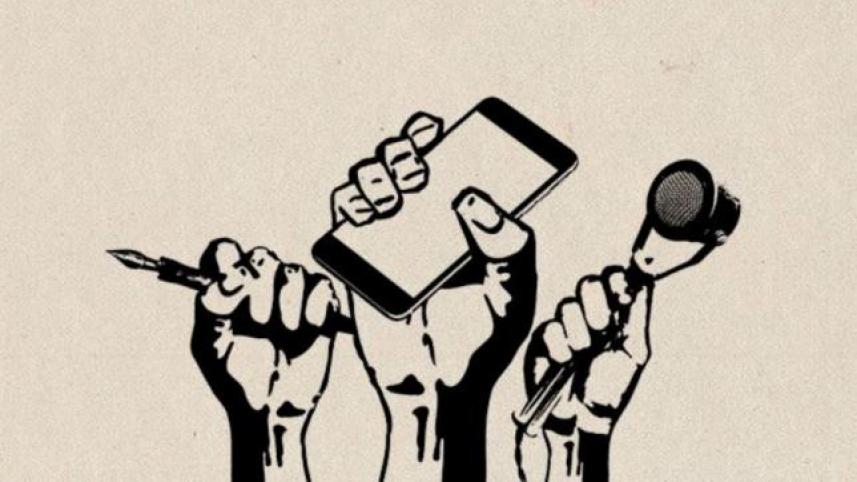Repressive law cannot suppress the truth for long

Every so often, we are bombarded with reports by rights watchdogs about the victims of the much-reviled Digital Security Act (DSA), a law that has been hanging like the Sword of Damocles over people's heads, particularly the media, since September 2018. Tomes have been written about the extremely harmful impacts of the act on the very fibre of the nation and the character of our society. Unfortunately, it has been used indiscriminately to curb free speech. That, given a situation where we have a command democracy and indeed a command politics—and a virtually fettered media—makes this state of affairs even more regressive.
To put the issue into perspective, we reproduce the statistics of a human rights watchdog as reported in this newspaper yesterday. According to Article 19, at least 172 cases were filed under the DSA between January and August this year. In these cases, 308 people from a variety of professions have been charged. Of them, unsurprisingly, 41 are journalists. As many as 114 of the accused were arrested immediately, many of whom are still awaiting bail. The figure is nearly as many as that of the arrested and charged in the previous 12 months, indicating a frightening increase in the use of the law.
To recount such statistics when the world is celebrating the International Day for Universal Access to Information lends a degree of poignancy to the matter. The nation has been crying foul since the very day the law was enacted. A law that creates negative consequences and becomes more oppressive than the situation it purports to address is a bad law. Democracy, in whatever form it exists, is not worth the name unless there is an unfettered and vibrant media, as well as the freedom for every citizen to vent their feelings and emotions at the authorities. But our experience in the last three years has been very painful. The Digital Security Act, 2018 has been so badly misused that it compels one to think if it is being used as a shield to prevent exposure of the iniquities, aberrations, and misdeeds of those in power.
One cannot contest the intention of the government to make legal arrangements that provide security in cyberspace. We all want that too. But in the current form, the DSA fits the definition of a bad law. And there is only one place fit for a bad law—the dustbin. That is where the DSA should be consigned to.



 For all latest news, follow The Daily Star's Google News channel.
For all latest news, follow The Daily Star's Google News channel.
Comments